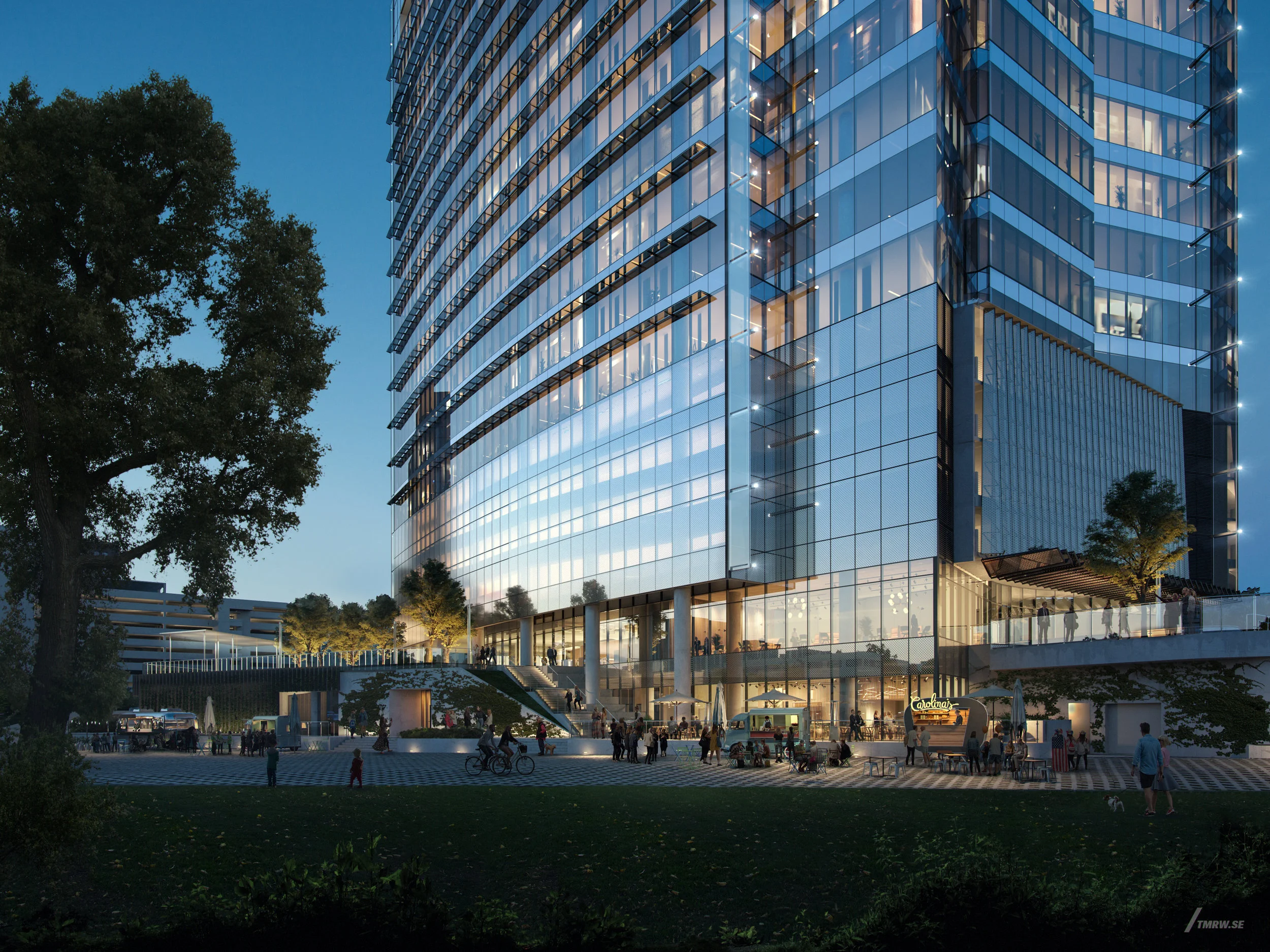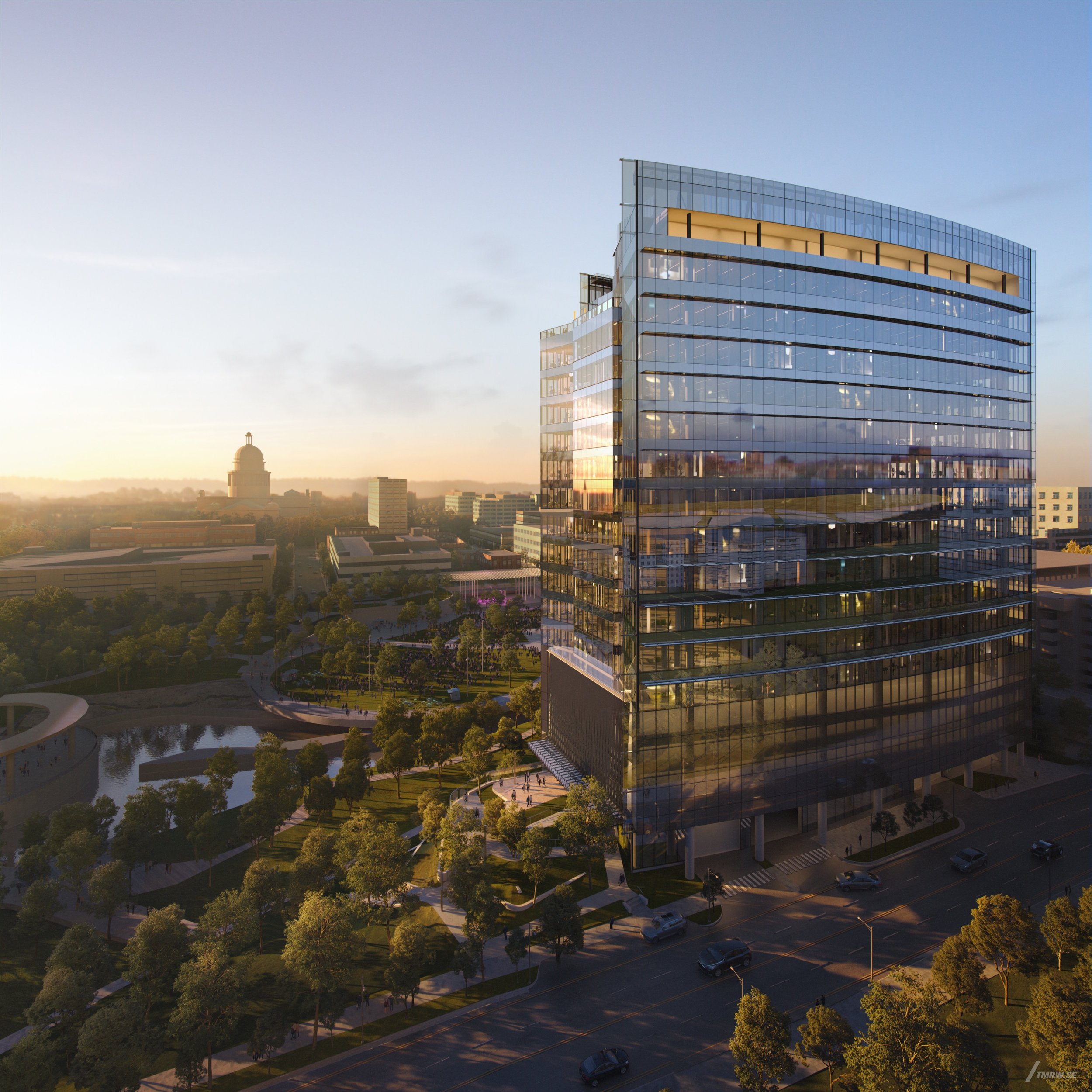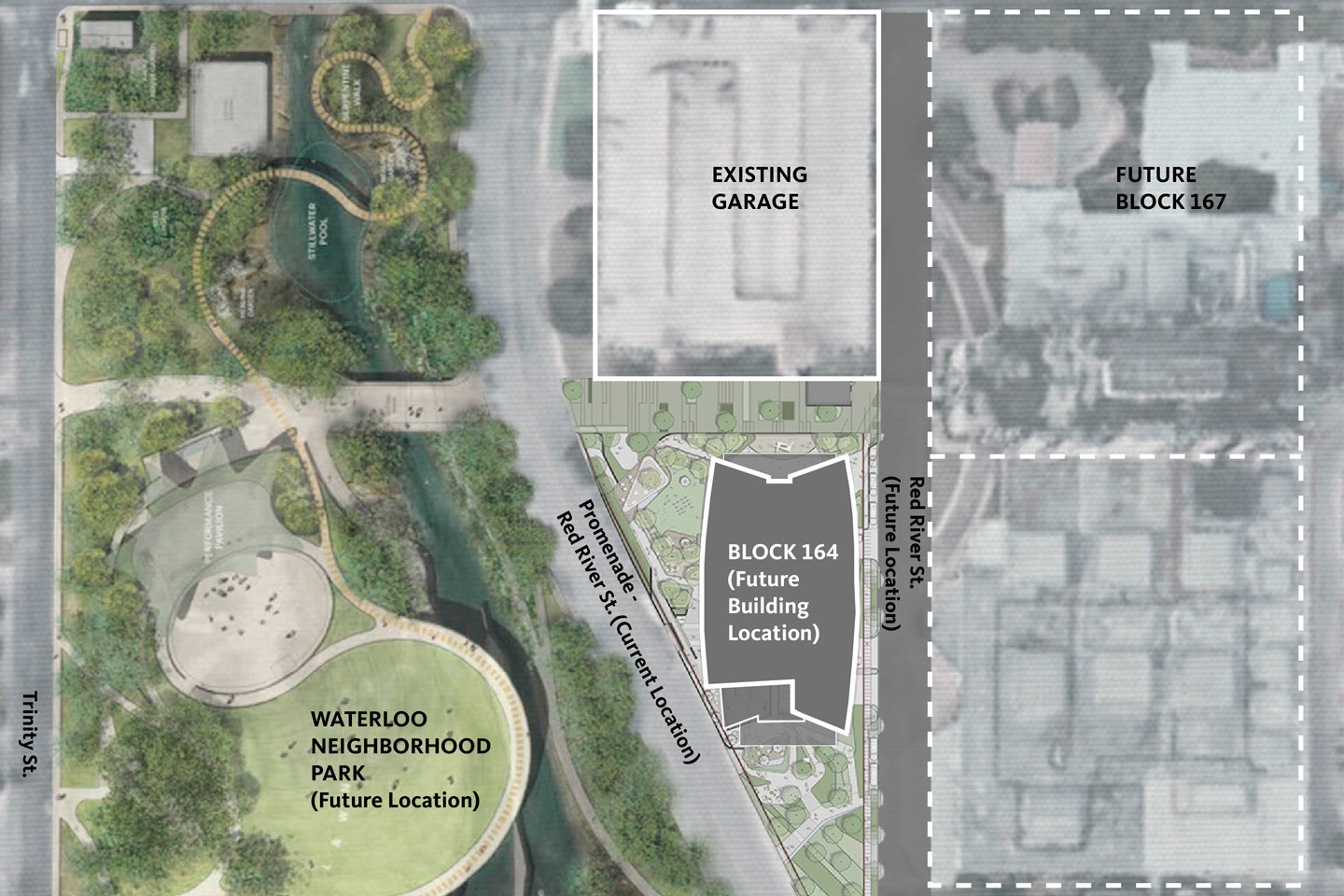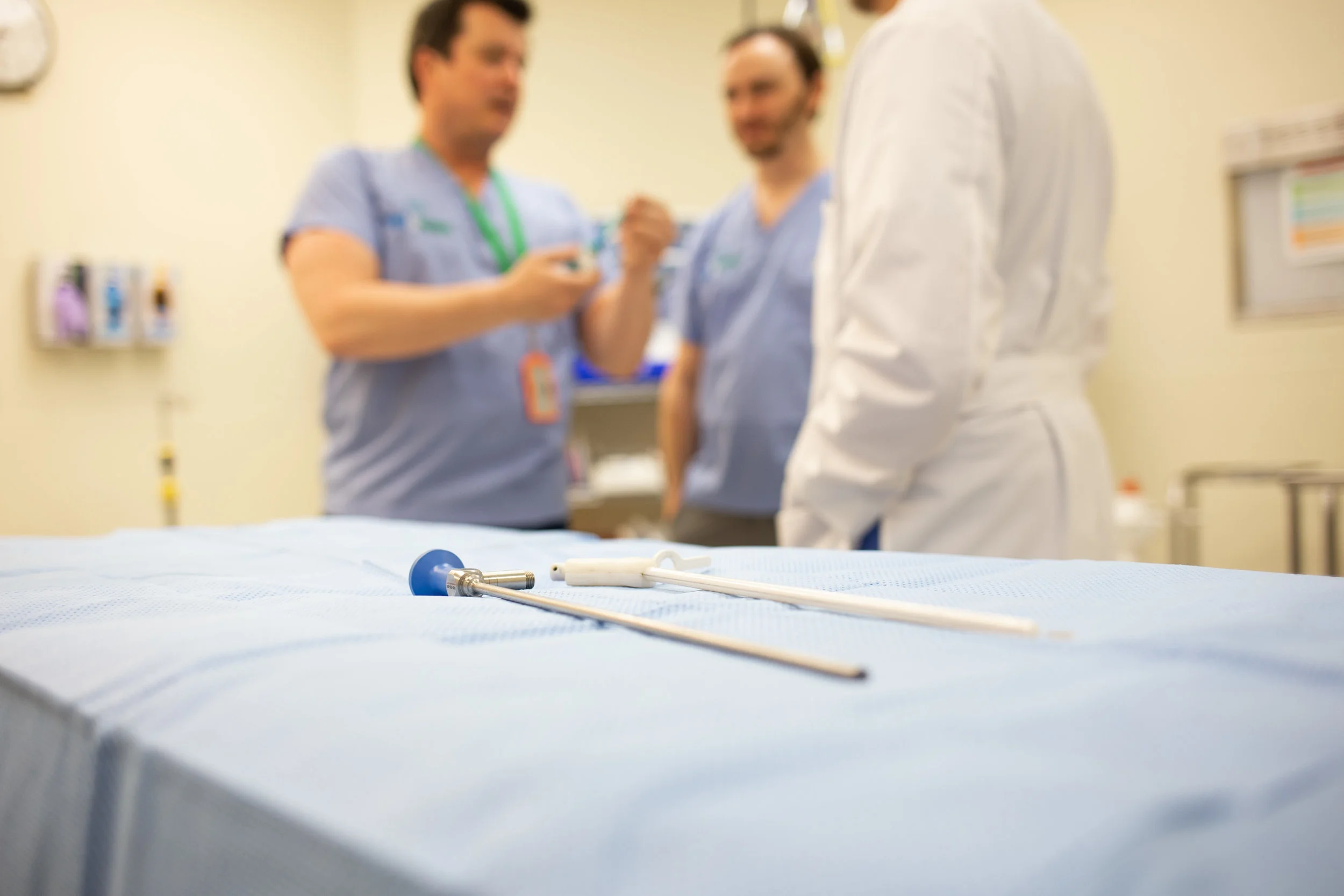Short on time? Jump down to the section that you’re interested in
Around The District | Across the Affinity Network | Opportunities | Resources | What We're Reading & watching | Events
Check out our roundup of news in our network from this past month and see upcoming events and opportunities!
Message from our Executive Director: Austin’s Innovation District is Rising!
If you haven’t already heard, Austin’s Innovation District just reached an important milestone: its first building has been announced. After many years as a concept in the imagination of our community and its leaders, Austin’s Innovation District will start rising out of the ground this Fall. Located on red River Street, right on Waterloo Park, we expect the first exciting building to open in early 2022. You can check out the coverage rounded up on our site or view the press release.
Austin’s Innovation District is a coordinated effort to recruit and build health technology organizations and to connect them meaningfully to the community, making Austin an international hub for medical and life science innovation.
Both an ecosystem and a physical development, the Innovation District’s core is formed by Central Health’s 14-acre downtown campus and is anchored by UT Austin and the Dell Seton Medical Center. Other stakeholders include the Downtown Austin Alliance, Opportunity Austin, the City of Austin, and Travis County.
The new building is expected to launch what could grow to 3-million square feet of mixed use development on the downtown innovation campus over the next ten years. Ultimately we expect the Innovation District to become a hub-and-spoke network that connects affiliated innovation partners across Austin and Central Texas in a powerful framework for collaboration.
The Innovation District makes sense as an investment in the commonwealth of our community. With a focus on collaboration that promotes inclusive health and community equity, it leverages the investment our community has already made in launching the Dell Medical School.
The strategic planning of this downtown innovation campus to attract health and life science users will maximize value for our community in at least three ways.
First it will drive premium value for stakeholders, including Central Health that will use it to provide healthcare to people in Travis County.
Second, it will increase the amount of investment by the private sector in university research and development for health.
Third, it will create more middle-skills jobs and more opportunities to connect them to long-term residents of our community via partnerships with regional educational organizations like Austin Community College, Huston-Tillotson, and St. Edward’s. For an early peek at this, see the story on Huston-Tillotson’s collaboration with Merck in our 2018 Annual Review.
Realization of the Innovation District’s potential will rely on more than just brick and mortar. Successful innovation districts are the result of strategic investment in signature programs that promote university-corporate-community collaboration. Capital City Innovation and its stakeholder organizations, are beginning to create best-in-class programs to achieve just this. Our key priorities are to connect innovators, to build life science and health innovation workforce skills and capacity, and to aggregate resources and invest in innovation. Our programs are designed to create impact, to be collaborative and inclusive, and to integrate with, and enhance, the physical environment that is now beginning to rise in the Innovation District.
Breaking ground on the first physical development is a significant milestone, and will build momentum for our collaborative innovation district project. Importantly, this 17-story building will be a microcosm of the district vision. A development project of the local non-profit 2033 Higher Education Development Foundation, the Innovation District flagship is expected to house (non-clinic) components of the Dell Medical School, some exciting larger local and international life science corporations, and accessible collaboration space - both vertically and horizontally integrated into the Innovation District community and programming!
I arrived in Austin about two years ago, brimming with excitement at the prospect of being part of a vibrant new health and life science innovation district being driven by a visionary consortium of organizational leaders. Now that we’re breaking ground my excitement is only growing.
Christopher Laing, MRCVS, PhD
Executive Director, Capital City Innovation
Around The District
A New Name for Our Neighbors on the Creek
Our neighbors have some news of their own! Waller Creek Conservancy has recently rebranded to Waterloo Greenway. Waterloo Greenway will be the name of the downtown park system along Waller Creek and the organization working to program and maintain it. Among the first phase of parks being restored along Waller Creek, and an anchor of the Innovation District, is Waterloo Park which is expected to open in Fall of 2020.
We are excited for the 1.5-mile park system and how it will enliven and connect the eastern side of downtown from south to north. Already the nearby Symphony Square, also maintained by Waterloo Greenway, has been holding events to bring the community to the area. Capital City Innovation’s programs and communications manager, Victoria O’Dell, serves on the Waterloo Creek Community Engagement Committee and we’re excited to partner and collaborate with Waterloo Greenway on their important work in the city.
UT Austin’s Strength in Synthetic Biology Positions Austin for Industry Growth
On August 23rd, UT Austin showcased some of their most exciting work in synthetic biology at the UT SynBio Day. Synthetic biology is the design and engineering (or re-engineering) of biological parts or systems, usually at the cellular or sub-cellular level, including genes, proteins and metabolic pathways.
Jointly hosted by the Cockrell School of Engineering, the College of Natural Sciences, and the Office of Technology Commercialization, UT SynBio Day attracted more than 200 faculty, postdoctoral fellows, students, and industry representatives. In a series of lightning talks, the event highlighted cutting-edge work in reprogramming bacteria, yeast, and algae for materials and energy production, characterizing new enzymes for genetic engineering, drug purposing, environmental protection, and novel mechanisms for harnessing the body’s immune system in the fight against cancer. Participants also engaged in interactive panels on technology commercialization (where CCI highlighted the opportunities of the emerging Innovation District), medical applications, and security.
Synthetic biology is rapidly becoming integrated into a number of industry sectors, including energy, food production, advanced materials, and health. Investment in the space has been rising rapidly over the last few years. In 2018, $3.8 billion was invested in synthetic biology companies, and 2019 is on track to match that record. Synthetic biology has become a key pillar in the research and development strategies of other countries, like China. In August, the largest donation to a synthetic biology research effort to date was made to establish a new synthetic biology research institute at Hong Kong University of Science and Technology, an effort to create a rival to centers at MIT and Berkeley.
Austin and Texas are well-positioned to respond to the increasing interest in new technologies in this space. According to their Office of Technology Commercialization, UT Austin has signed approximately 25 license agreements for intellectual property around technologies in the synthetic biology space. As a category, this is one of their most active licensing sectors, outside of only Pharma.
SynBio day also provided some insight into the interest in this space by the Army Futures Command, active here in Austin. Synthetic biology was recently elevated to one of the top ten research priorities with interests in personnel support, such as materials that use biology to enhance camouflage and concealment.
As Austin’s Health and Life Science Innovation District emerges, there will be new opportunities to support and grow our region’s strengths and industry partnerships such as by creating collaborative innovation space, and by working with partners to engage and grow our workforce in related areas such as biomanufacturing.
Growth of Life Science Innovation in Central Texas Continues to be Regional
In early May, we were reminded, yet again, that there is significant science innovation happening all over Central Texas.
On May 3, Capital City Innovation’s executive director participated in Temple Health and Bioscience District’s annual MedTech Symposium and Pitch Competition. This is the fourth time that THBD has held the event, and each year they get bigger and better. This year more than 90 people attended to hear discussions on the future of the medical marketplace, considerations for international product launches, and financing options for small businesses (the panel on which Capital City Innovation served, providing an overview of federal research grants for small businesses).
In addition to CCI, other organizations participating in the presentations included Baylor, Scott & White, the U.S. Department of Commerce, and the Central Texas Angel Network. The summit ended with pitches from startup companies from throughout the region working on technologies that included virtual solutions for training surgeons, advanced materials for more durable joint replacements, and artificial intelligence in medical imaging. The winner, Nabaco, a company developing an edible protective coating that increases the shelf life of fresh produce at room temperature, received $10,000 in cash and services from Temple businesses.
A day later, on May 4, San Marcos showcased its own exciting innovation pool at a pitch event for applicants to the Texas State University’s New Ventures program. The program is jointly run by several components of Texas State’s innovation ecosystem, including their I-Corps Site for Entrepreneurship, the Materials and Applications Research Center, and their technology incubator, STAR Park (a member of Capital City Innovation’s affinity network).
Ten teams, all of which include at least one significantly contributing member with a current role at Texas State (faculty, staff, or student), presented innovative business ideas that included AR/VR training, agricultural technology, renewables, and food safety. Judges, which included representatives from SXSW, Mass Challenge Texas, and Capital City Innovation, among others, selected three winners, who have the opportunity to work with entrepreneurs-in-residence, receive up to $20,000 in non-dilutive financing, and space and services at STAR Park. Winners included Surge Power, a team producing batter storage materials from a renewable plant source, and Augmented Training Systems, a startup creating AR/VR training systems for first responders, including a current program with the Austin Fire Department.
Pitch competitions serve several important purposes in an innovation ecosystem. Of course, they provide immediate resources for startup companies that are bootstrapping to get off the ground. They are also invaluable to companies that are still developing their business strategies as they can provide input from potential investors and (sometimes) customers. But there is also an ecosystem benefit. They are an opportunity for key professionals from across the product development spectrum to plug in and to network – facilitated, but otherwise unscripted “collisions” create the glue that binds an ecosystem’s network. They also provide an opportunity to showcase regional talent and accomplishment
THBD’s MedTech Symposium and Texas State University’s New Ventures day demonstrate that there is a strong and integrated life science innovation belt emerging along the I-35 corridor, running straight through Austin, and linking San Marcos, Temple, and beyond.
Across The Affinity Network
Our Affinity Network is comprised of six of the region’s premier hosted programs for health and life science companies in Central Texas. They provide wet and dry lab space, office and coworking, access to specialized equipment, mentorship and access to professional services, workforce support, and a sense of community.
This year a couple Affinity Network affiliated startup companies received SBIR grants. We want to say Congrats to Texas Health Catalyst alumnus, ClearCam and ATI SEAL Alumnus Xplosion. We look forward to watching these organizations progress and continuing to support and share out the successes of the network!
ClearCam Named Global Best-In-Class
An image of the ClearCam
ClearCam Inc., a graduate of the Texas Health Catalyst and member of the WorkSpaces @ Texas Health CoLab has been named a Top 50 Global Best-In-Class Medical Device Startup. The company is dedicated to improving laparoscopic surgery patient outcomes by reducing surgical team frustration, shortening surgical procedures, and lowering costs by maximizing the visualization platform. The company is preparing for regulatory approval in 2019 and is preparing to raise a Seed Series “B” round of funding.
You can read more about ClearCam in our recent #AustinInnovates post.
Genprex Makes Manufacturing Moves
Genprex, a company based out of the Texas Health CoLab, has made manufacturing one of its top priorities since its IPO in 2018. During that time, Genprex has been building out its manufacturing process development to support this expansion and advance its commercial scaling capabilities. The company recently announced that its manufacturing partner, Aldevron, has successfully completed the manufacturing of the TUSC2 (Tumor Suppressor Candidate 2) plasmid DNA pursuant to the manufacturing agreement between Genprex and Aldevron that was announced in September 2018.
Lung Therapeutics Receives SBIR Funding
Idiopathic pulmonary fibrosis (IPF) is a progressive, fatal lung disease (6.8-16.3 cases per 100,000 individuals in the US annually) with a median 5-year survival of <20%. Lung Therapeutics, Inc received 225k in Phase 1 SBIR NIH-NHLBI funding to support further development of LTI-03, a novel therapeutic for the treatment of IPF. Research will be performed over the next year at the ACC Bioscience Incubator in collaboration with Dell Pediatrics Research Institute, UT Austin and UT Tyler.
SiMMo3D Opens Second Office at MedtoMarket
Temple Health and Bioscience District(THBD) tenant SiMMo3D is utilizing network opportunities provided by Capital City Innovation and has opened a second office location at MedtoMarket. SiMMo3D works directly with biomedical companies to provide customized, detailed replicas that make it easier to educate surgeons on biomedical devices without the cost of using an anatomically ready device.
THBD Scholar Students Share Research
In its first year, the THBD Scholars Program sponsored eight students from colleges across Central Texas to help prepare them for the future of life science. On Friday, August 2, students showcased their research and experiences from the program.
Ready to explore joining our network with one of these partners? Learn more on on ‘For Companies’ page. You’ll be in great company!
Opportunities
From leadership development to funding, don’t miss these opportunities.
Register for the Health Care Startup Boot Camp
The Texas Health CoLab at Dell Medical School invites all startups in the health and life sciences to attend a free boot camp in collaboration with Wilson Sonsini Goodrich & Rosati (WSGR). The boot camp will empower you with the necessary information to create and develop your startup, with topics such as business plans, fundraising, intellectual property strategies, valuations and term sheets, and preparing and executing your investor pitch.
Breakfast and lunch are provided, and a networking reception will follow. Register today for the September 16th workshop.
Accenture HealthTech Innovation Challenge
Accenture wants to tackle some of the world’s biggest health care challenges. This year the challenge will have a focus on both health and life sciences. The health program is currently accepting applications until Sunday, September 22nd. Use this as an opportunity to show how #AustinInnovates.
Resources
Discover the latest findings from our community and beyond.
Need Help navigating the health startup space?
Check out these videos by our Affinity Partners.
Texas Health CoLab hosts a monthly learning series. If you miss out or want to revisit the topic you can always check out the recordings and accompanying blog posts online.
Temple Health & Bioscience District also has its monthly webinar recordings hosted online as well. Check out their youtube for the recordings.
What We're Reading & Watching
A round-up of articles and videos to spark insight and innovation.
Chris Laing Q & A (Health Tech Austin )
Central Health planning to demolish, redevelop building for Dell Medical School (Daily Texan Online)
17-story building coming to Austin's Brackenridge campus to fund health care for low-income families (KVUE)
Waller Creek Conservancy Rebrands to Waterloo Greenway (Austin Chronicle)
Events
Opportunities to meet, learn, and celebrate with our network and the broader community.
Texas Health CoLab Learning Series Continues
The Texas Health CoLab Learning Series invites you to their September seminar “The Mechanics of Term Sheets”. You can RSVP for this monthly series on Eventbrite.
THBD Monthly Lunch & Learns Continue
Temple Health and bioscience District invites you to their September lunch and learn “Beyond The Technology: 7 Steps To Develop High Performing Science And Technology Companies That Succeed”.
Learn more to register for the lunch and learn or join the webinar version.
See more events from the network and greater community below!
Our work is made possible by our founders and supporting sponsors. See who is fueling Austin’s Innovation







